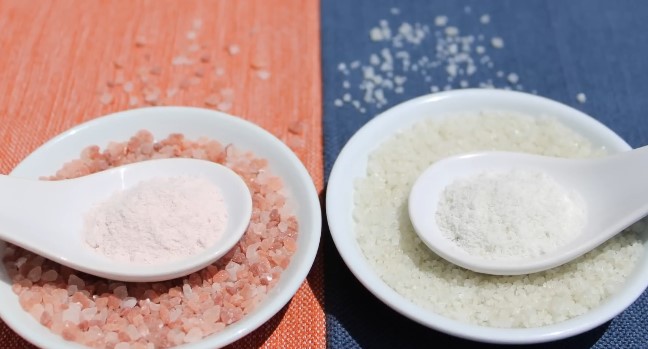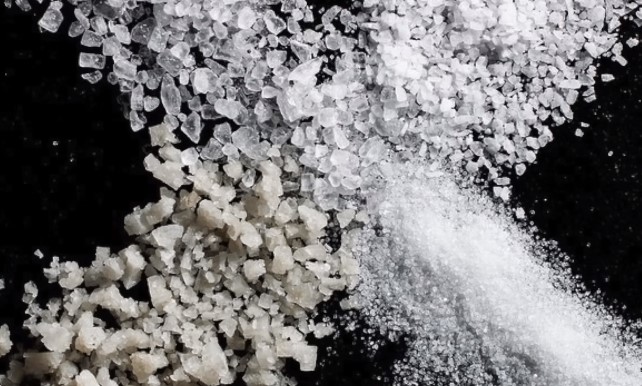Sea Salt Nutrition Facts
Sea Salt nutrition facts may not be something you've considered before, but understanding the surprising intricacies behind this ordinary kitchen ingredient can be quite enlightening. Our deep dive into this familiar mineral will challenge you to rethink its role in your diet, promising revelations you won't want to miss.
Sea salt has gained popularity as a natural and flavorful alternative to table salt. It is often touted for its potential health benefits and distinct taste. In this comprehensive article, we will delve into the nutrition facts of sea salt, compare it with table salt, and explore its health implications. By the end, you will have a clear understanding of whether sea salt is a healthier choice for your diet.

Introduction to Sea Salt Nutrition
Sea salt is produced through the evaporation of seawater and contains trace minerals not found in regular table salt. These minerals include magnesium, calcium, and potassium, which contribute to its distinct flavor and potential health benefits. The primary component of sea salt, however, is sodium chloride.
Detailed Nutrition Facts of Sea Salt
Basic Nutritional Information
Sea salt is predominantly composed of sodium chloride. Here’s a breakdown of its nutritional content per serving:
- Serving Size: 1/4 teaspoon (1.4 grams)
- Calories: 0
- Total Fat: 0g
- Sodium: 560mg (23% of Daily Value)
- Total Carbohydrates: 0g
- Protein: 0g
Trace Minerals
Besides sodium chloride, sea salt contains small amounts of other minerals:
- Magnesium
- Calcium
- Potassium
These minerals are present in trace amounts, contributing to the overall mineral profile of sea salt.
Health Implications of Sea Salt
Sodium Content and Health
Sea salt and table salt contain similar amounts of sodium by weight. Excessive sodium intake is linked to high blood pressure and other cardiovascular issues. Therefore, it is essential to consume salt, whether sea or table salt, in moderation.
Trace Minerals and Health Benefits
The trace minerals in sea salt, such as magnesium and potassium, are beneficial for various bodily functions. However, the quantities present in sea salt are minimal and unlikely to make a significant impact on your overall mineral intake.
Iodine Content
Table salt is often iodized to prevent iodine deficiency, which can lead to thyroid problems. Sea salt typically lacks added iodine, so it may not be a suitable replacement for iodized table salt in this regard.

Comparison: Sea Salt vs. Table Salt
Processing and Additives
- Sea Salt: Minimally processed, retains trace minerals, larger crystals.
- Table Salt: Highly processed, often contains anti-caking agents and added iodine, finer crystals.
Nutritional Differences
While the basic nutritional content (sodium) is similar, the additional trace minerals in sea salt are what set it apart. However, these differences are relatively minor and do not significantly alter the nutritional value.
Taste and Texture
Sea salt is often preferred by chefs and food enthusiasts for its coarse texture and distinct taste, which can enhance the flavor of dishes.
Frequently Asked Questions
What are the main differences between sea salt and table salt?
Sea salt is less processed and contains trace minerals, while table salt is refined and often includes added iodine and anti-caking agents.
Is sea salt healthier than table salt?
Not necessarily. Both types of salt contain similar amounts of sodium. The trace minerals in sea salt are minimal and do not provide significant health benefits over table salt.
How much sodium should I consume daily?
The American Heart Association recommends no more than 2,300 milligrams of sodium per day, with an ideal limit of 1,500 milligrams for most adults.
Can I use sea salt if I need iodine in my diet?
If you need iodine, you should ensure that your diet includes other iodine-rich foods or choose iodized table salt.
Does sea salt have fewer calories than table salt?
Both sea salt and table salt contain no calories.
By understanding the nutritional content and health implications of sea salt, you can make informed decisions about its use in your diet. Remember to use all types of salt in moderation to maintain a healthy balance.

Read also:





